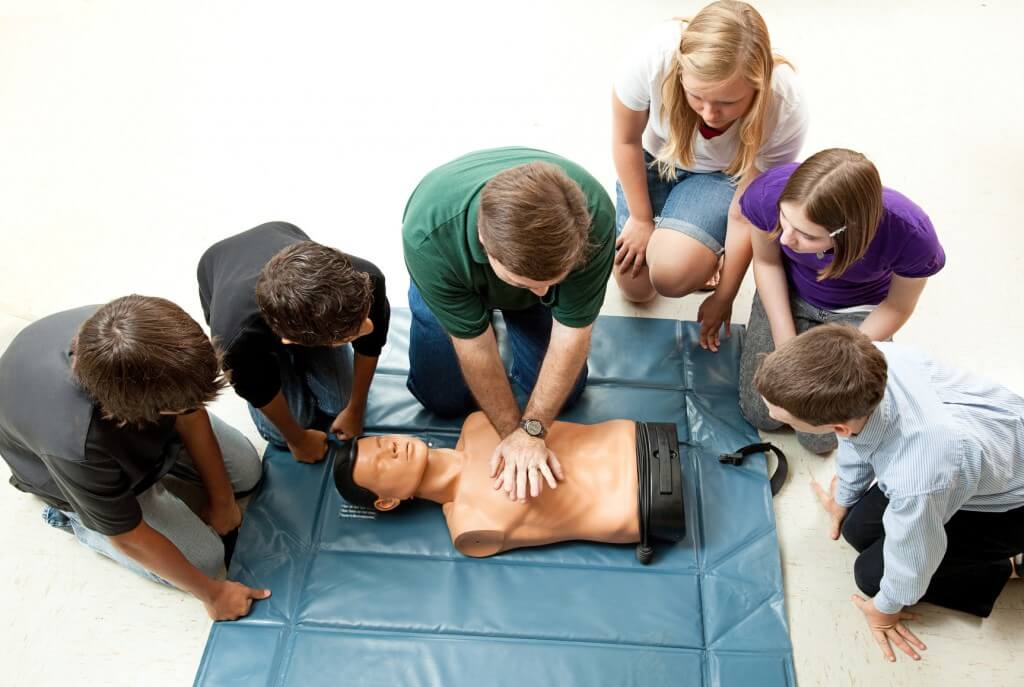Introduction
In emergencies, every 2nd counts. Cardiopulmonary resuscitation (MOUTH-TO-MOUTH RESUSCITATION) is a crucial ability that can conserve lives during cardiac arrest or breathing failing. Comprehending just how to do mouth-to-mouth resuscitation successfully can make the distinction between life and death. Our Canberra CPR Course deals thorough training created to outfit you with the knowledge and abilities needed to react confidently in emergency scenarios. This write-up will certainly assist you via understanding CPR, detailing our course offerings in Canberra and emphasizing the significance of being planned for emergencies.
Mastering CPR: A Step-by-Step Technique at Our Canberra Courses
At our training courses, you will certainly discover not simply the "how," but likewise the "why" behind each action of mouth-to-mouth resuscitation. The direction is customized to all ability degrees, whether you're a total newbie or aiming to revitalize your understanding.
The Significance of mouth-to-mouth resuscitation Training
CPR training is crucial for anyone who intends to be proactive regarding public security. It empowers individuals to act decisively when an individual's life hangs in the equilibrium. Signing up in a Canberra First Aid Training course Near Me guarantees you prepare when it matters most.

Understanding Cardiac Arrest
Cardiac apprehension takes place when the heart stops defeating successfully, bring about an absence of blood circulation to essential organs. Acknowledging the signs-- such as unresponsiveness or abnormal breathing-- is critical for timely intervention.
Why Select Our Canberra Mouth-to-mouth Resuscitation Course?
Our courses supply hands-on training from licensed instructors with real-world experience. You won't simply endure talks; you'll practice on mannequins and participate in simulations that mimic real-life scenarios.

What Will You Learn in Our Mouth-to-mouth Resuscitation Course?
Our curriculum covers multiple aspects crucial for efficient mouth-to-mouth resuscitation:
Recognizing Emergencies Calling for Help Performing Breast Compressions Using an Automated External Defibrillator (AED) Rescue Breathing Techniques Special Considerations for Infants and Children1. Acknowledging Emergencies
Before jumping into activity, it's necessary to assess the situation precisely:

- Is the person conscious? Are they taking a breath normally? Do they have a pulse?
Being able to address these inquiries swiftly will determine your next steps.
2. Calling for Help
Always call emergency services before trying mouth-to-mouth resuscitation. In Australia, dial 000 for urgent assistance.
Performing Chest Compressions: The Heart of CPR
Chest compressions go to the facility of effective mouth-to-mouth resuscitation methods; they assist keep blood flow to vital organs until specialist assistance arrives.
Technique Overview
- Position your hands properly-- location one turn over the other on the middle of the chest. Keep your joints straight and utilize your body weight to press downwards. Aim for at least 100-- 120 compressions per minute.
Tips for Effective Compressions
- Ensure complete chest recoil after each compression. Count aloud or follow a rhythm (think "Stayin' Alive" by Bee Gees).
Using an AED: A Vital Device in Emergencies
An Automated External Defibrillator (AED) is developed to analyze heart rhythms and supply shocks if necessary.
How to Utilize an AED?
First Aid Course Canberra - Skills Training College Turn on the device. Apply pads according to layouts given with the AED. Follow voice triggers carefully-- make certain no person is touching the victim when a shock is delivered.Rescue Breathing Methods: When Needed Most
In certain situations, rescue breathing may be required along with compressions.
When Is Rescue Breathing Required?
If you're educated and positive, rescue breaths are specifically helpful when taking care of children or sinking sufferers where oxygen starvation has occurred.
Steps for Rescue Breathing
Open the respiratory tract by tilting the head back slightly. Pinch the nose shut and cover their mouth with yours. Give two breaths lasting concerning one second each while watching for upper body rise.Special Factors to consider for Babies and Kids: Day Care First Aid Course Canberra
Learning exactly how to provide mouth-to-mouth resuscitation on infants and children calls for details techniques fit for their physical differences.
Differences in Strategy for Children vs Adults
When performing breast compressions on youngsters:
- Use one hand rather than two. For babies, use 2 fingers only.
In our specialized programs like the Child Treatment First Aid Course Canberra, you'll find out these subtleties that can conserve young lives.
FAQs Concerning Our Canberra Courses
What is included in your Canberra First Aid Course?- Our training course includes practical training sessions, theoretical knowledge analyses, and accreditation upon completion.
- Typically, our courses last around 4-- 6 hours depending upon class size and certain web content covered.
- Participants have to go to least 14 years old; nevertheless, more youthful pupils might go to with adult approval under specific conditions.
- No prior experience is required! We welcome novices excited to discover lifesaving skills.
- Upon successful completion, participants receive nationally acknowledged certificates legitimate throughout Australia.
- We offer numerous areas throughout Canberra! Examine our internet site for upcoming classes near you.
Conclusion
Mastering mouth-to-mouth resuscitation isn't simply an advantageous skill; it's an important life-saving technique that everybody ought to know just how to perform with confidence and efficiently-- particularly those involved in childcare settings through our Canberra Day care Emergency treatment Course Near Me By registering in our comprehensive courses right here in Canberra, you're not just preparing on your own yet additionally enhancing neighborhood safety along with individual security throughout emergencies that could arise unexpectedly at home or elsewhere.
Taking activity today might imply saving someone's life tomorrow-- do not put it off any longer! Join us at our next course session and allow's collaborate in the direction of producing safer settings through notified people prepared to act quickly when every 2nd counts!